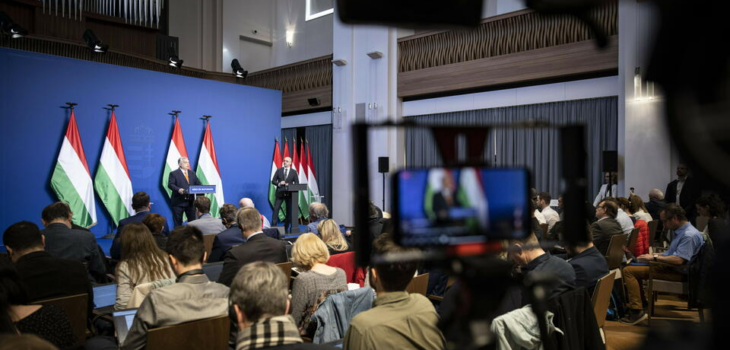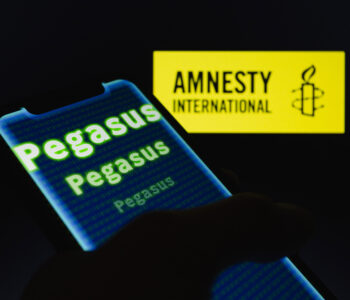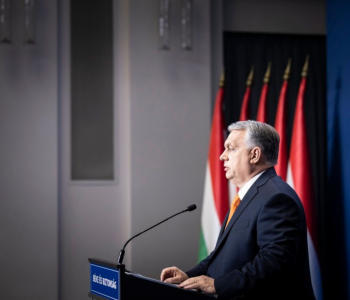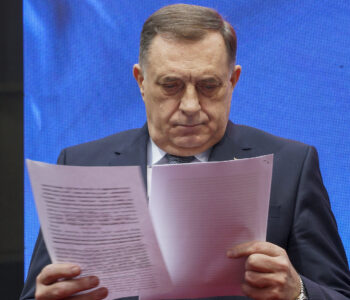
Hungary: Independent journalism needed more than ever after Orbán victory
The International Press Institute (IPI) and its global network of leading journalists, editors and media executives today expressed steadfast support and solidarity with independent journalists and media outlets in Hungary, who continue to produce important public interest journalism in an increasingly resistive media landscape.
IPI also called for renewed efforts from the European Union, European institutions and the wider international community to help defend press freedom following the election victory of Prime Minister Viktor Orbán.
Since Orbán and his ruling Fidesz party sealed an unprecedented fourth term in office in the parliamentary election on April 3, IPI has spoken with editors in the country who have voiced concerns over the future of independent and public interest journalism in Hungary.
“Over the past 12 years, the Fidesz regime in Hungary has dismantled media freedom brick-by-brick, abusing state resources to marginalize watchdog journalism and build a massive pro-government propaganda machine. It has effectively insulated large parts of the public from independent news and information – without which there is no real democracy”, IPI Deputy Director Scott Griffen said. “This system of media capture and control was built openly on the EU’s watch, a failure that has allowed Fidesz’s modern version of authoritarianism to flourish and inspire would-be autocrats across the region.
“As war rages in Ukraine, the EU’s support for Kyiv’s young democracy throws the urgency of addressing democratic deficits within the bloc’s own borders into sharp relief. At the risk of a wider erosion of fundamental values across the continent, the EU must use all tools at its disposal to restore media freedom and pluralism in Hungary. The Commission’s recent announcement of unprecedented rule of law proceedings against Budapest is a welcome step – but only a first one.
“At the same time, it is essential to support the survival and financial sustainability of the remaining independent media in Hungary, which continue to do their job – now needed more than ever – despite an atmosphere of pervasive discrimination and harassment and the spectre of disillusionment. The IPI global network stands in unwavering solidarity with our members and the wider community of independent journalists in Hungary.”
Shrinking space for independent journalism
As detailed in a recent report published by IPI ahead of the election, under more than a decade of Fidesz rule, media freedom and pluralism have been systematically eroded through a combination of politically-motivated regulatory decisions and takeovers of once-independent media by Fidesz’s business allies.
As more and more titles and stations were acquired by government supports, the space for independent journalism has continued to shrink. The only market sector where independent outlets can rival pro-government players is online news, where multiple independent media have high daily readership. However, the government’s market-distorting practices and systematic discrimination limit their reach and impact as well as their financial sustainability.
Under successive Fidesz administrations, independent media have seen their business models upended as advertising funding from state companies and institutions was withdrawn. Journalists working for these titles experience systematic discrimination in terms of access to information, are regularly denied access to minister’s press conferences, and face major barriers in receiving answers to questions or information and data from public bodies.
Investigative reporting on matters of public interest is largely drowned out by Fidesz’s pro-government media empire. To further isolate these media, the government continues to divide the journalistic community down political and ideological lines, portraying journalists as purely “political actors”. Revelations about the use of Pegasus spyware by government intelligence or law enforcement services on journalists has meanwhile increased a sense of insecurity and the perception of critical journalists as “enemies of the state”.
To achieve this unprecedented level of political control over the country’s media ecosystem, Fidesz has pursued the most advanced model of media capture ever developed within the European Union. This process has involved the coordinated exploitation of legal, regulatory and economic power to gain control over public media, concentrate private media in the hands of allies, and distort the market to the detriment of independent journalism.
IPI is planning to visit Budapest in the coming weeks to meet with independent journalists and editors and discuss efforts to strengthen networks between independent media outlets.
IPI has developed fifteen recommendations for the new administration to implement to help improve the landscape for media freedom in Hungary. IPI also has seven proposals for the EU to help defend independent media in the country. Click here to view the recommendations.
This statement by IPI is part of the Media Freedom Rapid Response (MFRR), a Europe-wide mechanism which tracks, monitors and responds to violations of press and media freedom in EU Member States and Candidate Countries.











